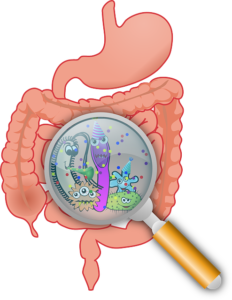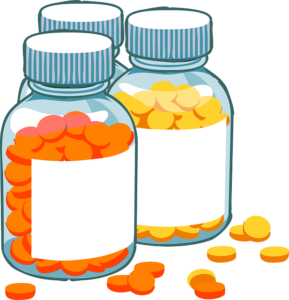
In the past decade or so, gut health has become a topic of interest for researchers and regular people looking to improve their health. Gut health is linked to several areas that promote health and wellbeing in the body. As such, people want to learn more about how to maintain gut health so they can feel better and avoid health issues. Research findings are showing that the gut microbiome is an essential aspect of our overall health. So, let’s look deeper into how and why we should maintain our gut health.

Gut health refers to a proper balance of bacteria in the gut which promotes proper digestion and absorption of nutrients. It also refers to adequate nutrition as a way to support the bacteria in our gut. Also, by getting adequate nutrition and supporting bacteria growth, we can lessen our chances of getting other illnesses like diabetes, obesity, cardiovascular disease, etc.
Gut health refers to a proper balance of bacteria in the gut which promotes proper digestion and absorption of nutrients. It also refers to adequate nutrition as a way to support the bacteria in our gut. Share on XThe microbiome is comprised of all the microbes that live in a particular environment. We have a gut microbiome, but we also have one on the skin, in our homes, and in nature. In fact, we all live in one giant microbiome, called earth. The environment and how we interact with it has a big part to play in the health of our bodies. We also affect the microbiome for other living things as well. Every time we dump carbon and other pollutants in the air and water, we affect the overall microbiome we will live in. In turn, this also causes problems with our microbiome in and on our bodies.
 How Much Bacteria Should I Have in my Gut?
How Much Bacteria Should I Have in my Gut?The most important thing about our gut microbiome is ensuring a healthy and diverse amount of good microbes. It’s not so much the numbers of each bacteria; instead, it’s about the diversity. The more varied they are, the better our health will be. When we have an overgrowth of one type of bacteria, we often feel sick. Also, too much of one bacteria can prohibit the growth of others, which leads to dysbiosis. Dysbiosis refers to a gut that doesn’t have a balanced and abundant microbiome.
Good gut microbes are things like lactobacillus and bifidobacteria. These bacteria are essential in helping us break down food and absorb nutrients. They also help protect and repair damaged tissue inside the intestines. This is a vital part of reducing and preventing inflammation. Without diverse numbers of good bacteria, our body can become inflamed, leading to a variety of diseases and health problems. Our goal should be to protect and maintain the good bacteria in our gut. By doing so, these bacteria will help protect us as well.
Harmful microbes refer to bacteria that not only make us sick but they prevent good bacteria from growing and doing their job correctly. Examples of harmful bacteria are c. difficile, e.coli, and salmonella. Also, various forms of fungi such as candida can cause health issues as well. An overgrowth of candida has been known to cause fatigue, diarrhea, indigestion, and inflammation. When our gut has a good amount of beneficial bacteria, these harmful microbes don’t have as much of a chance to grow.
Probiotics are concentrated amounts of good bacteria that you can take in pill form. These products are for people who are lacking in good microbial diversity in their gut. The majority of probiotics contain lactobacillus and bifidobacterium. They also contain healthy yeasts as well; another beneficial microbe. Often probiotics are kept in the fridge to ensure the health of the bacteria in each pill.
There are many types of probiotic products. Be sure to talk with a nutritionist or naturopath to choose the right product for you. The research about probiotics is up and down. Many research studies lack the scientific rigor needed for the products to be approved by the FDA. Nonetheless, there’s enough research and anecdotal evidence that shows that probiotics are very helpful.
Prebiotics are basically food for our beneficial bacteria. They contain a type of fiber that is not digestible in the human intestinal tract. It is broken down and fermented in the gut. Prebiotics won’t help if you don’t already have enough good bacteria in your gut. However, many probiotic products come with prebiotics in them to help support the growth of beneficial bacteria.
Prebiotic products (pills that you buy from the store) are generally made with a substance called inulin. However, there are many foods that are considered prebiotic as well. Certain undigestible fibrous carbohydrates are considered prebiotics. These undigestible compounds ferment in the gut and the products of fermentation feed the good bacteria in our gut. So, in a sense, prebiotics are just as important if not more important than probiotic products.
Having both probiotics and prebiotics are essential to maintaining gut health. They work together to ensure the health, diversity, and strength of the microbes in our gut. In this way, the beneficial microbes can do their job of breaking down food, creating by-products that aid our digestion, prevent inflammation, and increase the nutrients we absorb. Without this process, we can’t maintain our health very well. Some research shows that gut bacteria influence the health of our brains and the bacteria can even communicate with our nervous system.
 Are There Other Products that Help With Gut Health?
Are There Other Products that Help With Gut Health?The good news is that we don’t have to rely only on probiotic and prebiotic pills sold in natural health stores. We can get both probiotics and prebiotics in different food items. Mainly these food items consist of fermented products. For example, sauerkraut is full of both prebiotic and probiotic substances. The fiber in the cabbage ferments creating food for the beneficial bacteria that grow on the cabbage. Another example is kombucha; a fermented drink made from a blob of yeast and bacterial culture. It may sound unappetizing, but it actually tastes quite good and it’s excellent for your health and wellbeing.
Perhaps the best news is that we can make these products ourselves in our own homes. There are many websites that can teach you how to ferment things to create your own prebiotics and probiotics. Research shows that eating fermented foods is a better way to get proper amounts of probiotics and prebiotics.
There are a few other key factors that help maintain gut health. For one, antibiotics can wipe out our gut microbiome quite easily. Although antibiotic treatment may be medically necessary for certain conditions, it may not always be required for everything. For example, a viral illness that has no evidence of bacterial infection likely doesn’t require antibiotics. You should avoid taking antibiotics if they are not necessary. They should only be taken for a serious infection.
Secondly, diet plays a big part in maintaining gut health. A diet rich in fiber and nutrients is very important. Much of our modern diets contain too much sugar and processed fats, which can kill off our healthy microbiome. There are also chemicals in processed food that can decimate our gut bacteria as well. It’s best to limit these foods and increase healthy vegetables, fruits, and fibrous carbohydrates.
Many people report having diarrhea and bloating after they lose beneficial bacteria through things like antibiotic treatment or a gastrointestinal illness. The loss of beneficial bacteria is usually temporary, but it can take some time to build back the gut microbiome. In these moments, it’s good to have a healthy diet along with probiotic and prebiotic treatment to help restore the diverse bacteria in our guts.

When our gut lacks healthy and diverse amounts of good bacteria, we fall into a state called dysbiosis. This can cause mild health problems if the dysbiosis is temporary. Mild symptoms are usually things like diarrhea, constipation, bloating, and indigestion. However, long-term dysbiosis has been linked to several more serious health conditions such as autoimmune disease, allergies, chronic inflammation, diabetes, obesity, migraines, and nervous system damage.
Without a healthy gut microbiome, our intestines are unprotected which can lead to a condition called leaky gut syndrome. Leaky gut is basically a term to describe an intestinal barrier that has become too porous. This means that harmful substances can pass through the gut barrier and into the bloodstream causing a widespread inflammatory process. This inflammation is what can set off various health problems as described above.
Without a healthy gut microbiome, our intestines are unprotected which can lead to a condition called leaky gut syndrome. Leaky gut is basically a term to describe an intestinal barrier that has become too porous. Share on XWithout a healthy gut microbiome nutrients don’t get broken down and absorbed properly. This leads to vitamin deficiencies and malnutrition. Without nutrients, our bodies can’t perform the necessary functions to maintain proper health. This seriously affects our quality of life over the longer term.
On top of a bad diet and lack of pre and probiotics, certain illnesses can contribute to a loss of beneficial bacteria in our gut. Interestingly, these health issues can be caused by dysbiosis so it’s hard to know what comes first, the illness or the dysbiosis. Nonetheless, illnesses like diabetes and autoimmune issues are known for degrading the gut biome.
You can take action right now to help promote and maintain your gut health. Number one is to ensure a healthy diet with lots of fiber and nutrients. Eat lots of diverse fruits and vegetables. Also, try to eat complex fibrous carbohydrates like whole grains and root vegetables.
Next, try to find a source of probiotics and prebiotics that work for you. If you don’t have time to ferment things like sauerkraut or kombucha, you can try buying these products from a natural health store. They tend to be expensive but they’re worth it. If you don’t like fermented foods then you can find probiotics and prebiotics in a pill format.
Maintaining gut health is essential for our overall health and wellbeing. Gut health is about having a healthy a diverse gut microbiome. We want to have healthy amounts of beneficial bacteria and low amounts of harmful bacteria. Good bacteria are essential for digestion and nutrient absorption as well as promoting health and preventing inflammation.
We can maintain our gut microbiome by eating a healthy diet and taking prebiotics and probiotics. The best sources of these two substances are fermented foods, but taking them in a pill form can also be helpful.
A gut lacking in diverse and beneficial microbes is in a state of dysbiosis. This can cause several health problems such as leaky gut, inflammation, and other health conditions. Some health conditions like diabetes, obesity and autoimmune disease can be caused by dysbiosis and can make dysbiosis worse.
A gut lacking in diverse and beneficial microbes is in a state of dysbiosis. Share on XSo it’s obvious that the more we put emphasis on maintaining our gut health, the better our overall health will be.
https://www.ncbi.nlm.nih.gov/pmc/articles/PMC6463098/
https://www.ncbi.nlm.nih.gov/pmc/articles/PMC4315779/
https://www.ncbi.nlm.nih.gov/pmc/articles/PMC6733864/
https://pubmed.ncbi.nlm.nih.gov/30535609/

Gillian is a former nurse and joined the Homebiotic team as a researcher & science writer. She loves traveling the world and currently lives in Colombia.
Subscribe to our newsletter
© 2024 Homebiotic Inc. All rights reserved. | Privacy Policy | Terms of Use These statements have not been evaluated by the FDA. Homebiotic is not intended to diagnose, treat, cure, or prevent any disease.